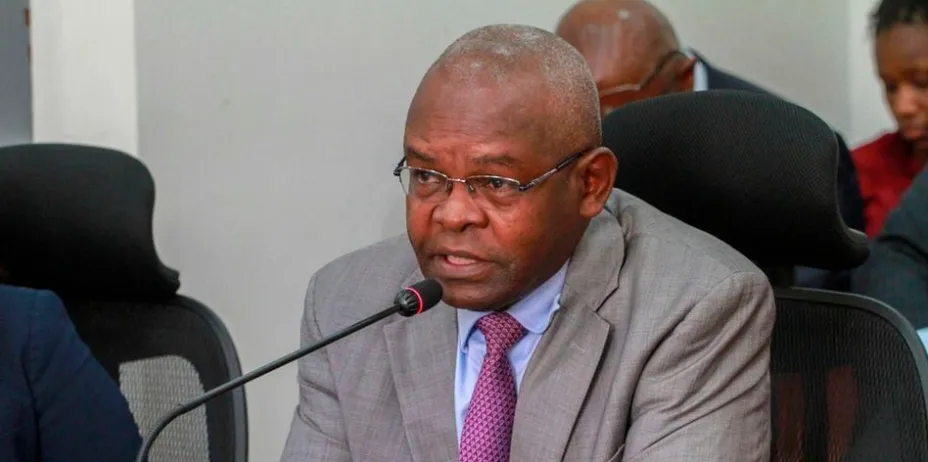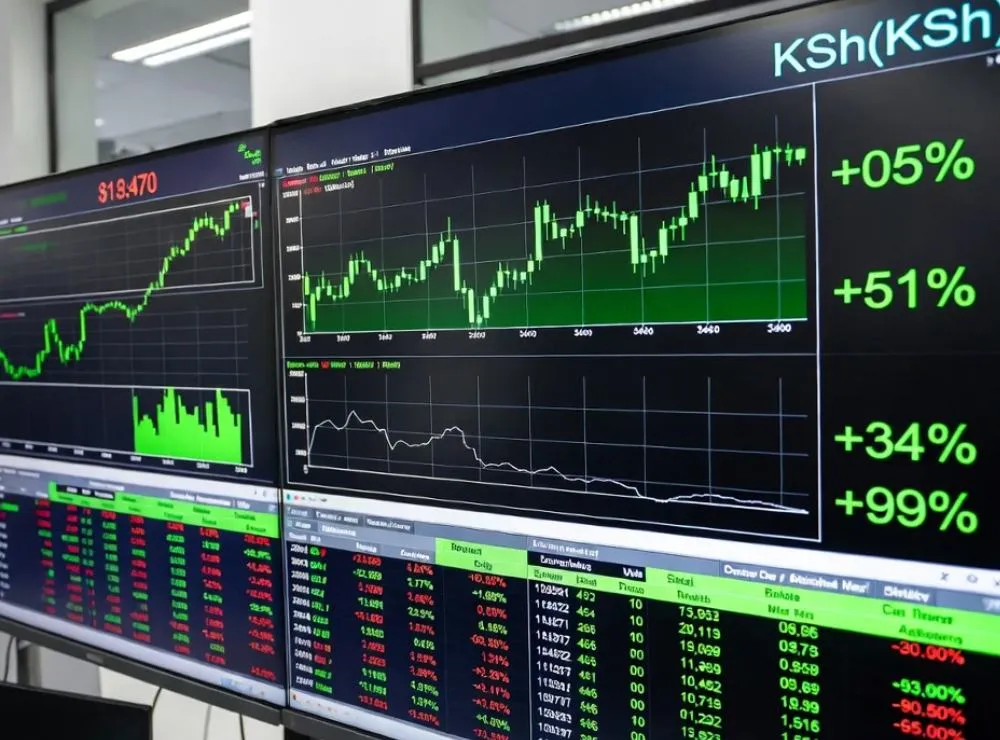Introduction
The Nigerian bond market has been experiencing a wave of volatility as investors sell off government bonds ahead of the upcoming Debt Management Office (DMO) auction. The sell pressure pushed average yields on government bonds higher, reaching 19.10% in the secondary market, according to traders and market analysts. The bond market in Nigeria has been a critical source of funding for the government, but rising inflation, tight liquidity, and global monetary tightening are weighing heavily on investor sentiment.
This recent development reflects broader economic challenges in Nigeria as investors reassess their strategies in the face of fluctuating yields, a depreciating naira, and tight liquidity in the banking sector.
Recent Bond Market Activity
Last week, trading activity in the Nigerian secondary bond market was relatively muted, with a negative close on Friday. According to traders’ notes, most of the trading focus was on specific maturities, including the bonds maturing in April 2029, February 2031, May 2033, March 2050, and June 2053. These maturities attracted significant attention from investors looking to reposition ahead of the upcoming DMO auction.
Despite the slowdown in secondary market activity, the sell pressure caused a marginal increase in the average bond yield, climbing by two basis points to 19.10%. This uptick is indicative of the broader market sentiment, where short and mid-tenor bonds faced increased selloffs, driven by investors positioning for more favorable returns in the primary market.
DMO’s Auction Strategy and Market Expectations
The Debt Management Office’s auction calendar for October revealed that the government is aiming to raise N200 billion through the sale of bonds, a move that has caught the attention of yield-hungry investors. The DMO plans to offer the 19.30% FGN APR 2029 bond and the 18.50% FGN FEB 2031 bond, while the FGN MAY 2033 bond is now off-the-run.
The anticipated auction has heightened expectations in the market, particularly as investors anticipate higher yields due to tight liquidity conditions and high inflationary pressures. Bond yields in Nigeria have been rising consistently as the Central Bank of Nigeria (CBN) maintains a restrictive monetary policy stance to curb inflation, which currently sits at around 25.8% as of September 2024.
In a market update, Afrinvest Capital Limited noted that the sell pressure was particularly strong in the mid-tenor segment, with the February 2031 bond seeing a 20 basis point increase in yields. Shorter-dated bonds, such as the March 2025 bond, remained relatively stable, although limited to smaller retail transactions. The long-term bonds saw little change in yield, as thin trading volumes persisted in that segment.
Liquidity Crunch and Impact on Investor Behavior
One of the key factors driving sell pressure in the Nigerian bond market is the ongoing liquidity crunch in the banking system. Banks have been actively accessing the Central Bank’s Standing Lending Facility (SLF), with borrowings totaling N4.40 trillion. This reflects a broader lack of liquidity in the financial system, which has been exacerbated by the depreciation of the naira and increasing borrowing costs.
The lack of liquidity in the system is pushing investors to sell off bonds to meet their short-term financing needs, adding to the sell pressure. Analysts at Cordros Capital Limited believe that the current market conditions are reflective of the broader macroeconomic challenges facing Nigeria, including the imbalance between bond supply and demand, as well as the monetary policy environment both domestically and globally.
The CBN’s tight monetary stance, which includes raising the benchmark interest rate to 18.75%, is designed to rein in inflation but has also made borrowing more expensive and dampened demand for bonds. In the global context, rising interest rates in developed markets are making Nigerian bonds less attractive compared to safer, higher-yielding alternatives.
Monetary Policy and Inflationary Concerns
Monetary policy is a crucial driver of bond market performance, and the CBN’s current policy direction is largely influenced by the need to stabilize the naira and combat rising inflation. The devaluation of the naira, which has lost nearly 50% of its value against the U.S. dollar in 2024, has made imports more expensive and contributed to inflationary pressures. As a result, the CBN has little choice but to keep interest rates high in an effort to curb inflation, even if it means stifling growth in the bond market.
Inflation in Nigeria has been driven by a combination of factors, including food price hikes, fuel price increases following the removal of fuel subsidies, and the devaluation of the naira. The inflationary environment has led to increased costs of living for Nigerian households and businesses, and this in turn has created uncertainty in the bond market as investors seek higher yields to compensate for the eroding purchasing power.
Given these challenges, Cordros Capital Limited maintains its medium-term expectation that bond yields will remain elevated, driven by both domestic and global factors. Globally, the U.S. Federal Reserve and other major central banks continue to tighten monetary policy, which has contributed to the rise in global bond yields and made it more difficult for emerging markets like Nigeria to attract foreign investment.
Implications for Investors and Government Borrowing
For investors, the rising bond yields in Nigeria present both risks and opportunities. On one hand, higher yields can offer more attractive returns, particularly in an environment where inflation is high and real returns on other asset classes are limited. On the other hand, the volatility in the bond market, coupled with the liquidity crunch and monetary tightening, creates significant risks, particularly for long-term bondholders who may face capital losses if yields continue to rise.
From the government’s perspective, the rising cost of borrowing is a cause for concern. The DMO’s decision to raise N200 billion at the October auction is part of its broader strategy to finance the government’s budget deficit, which is expected to reach N11 trillion in 2024. However, the rising yields mean that the government will have to pay more to service its debt, further straining public finances.
Nigeria’s debt servicing costs have already surged in recent years, with the country spending over 90% of its revenue on debt servicing in 2023. The increase in bond yields will exacerbate this problem, making it more difficult for the government to invest in critical infrastructure and social programs.
Conclusion
As the Nigerian bond market braces for the upcoming DMO auction, investors are facing a challenging environment characterized by rising yields, tight liquidity, and economic uncertainty. The sell pressure in the secondary market, coupled with the DMO’s plan to raise N200 billion through bond sales, highlights the delicate balance that investors and the government must strike in navigating these turbulent times.
While higher yields may attract some investors looking for better returns, the broader macroeconomic challenges, including inflation, monetary tightening, and liquidity shortages, remain significant headwinds. For the Nigerian government, the rising cost of borrowing will continue to strain public finances, making it imperative to find sustainable solutions to the country’s fiscal challenges. As the market adjusts to these realities, all eyes will be on the outcome of the DMO auction and its implications for the broader bond market and economy.
Ignite Your Future with Serrari Group! 🚀
Ready to take your career to the next level? Join our dynamic courses: ACCA, HESI A2, and ATI TEAS 7! 🌟 Dive into a world of opportunities and empower yourself for success. Explore more at Serrari Ed and start your exciting journey today! 💪✨
Photo source: Google
By: Montel Kamau
Serrari Financial Analyst
14th October, 2024
Article, Financial and News Disclaimer
The Value of a Financial Advisor
While this article offers valuable insights, it is essential to recognize that personal finance can be highly complex and unique to each individual. A financial advisor provides professional expertise and personalized guidance to help you make well-informed decisions tailored to your specific circumstances and goals.
Beyond offering knowledge, a financial advisor serves as a trusted partner to help you stay disciplined, avoid common pitfalls, and remain focused on your long-term objectives. Their perspective and experience can complement your own efforts, enhancing your financial well-being and ensuring a more confident approach to managing your finances.
Disclaimer: This article is for informational purposes only and does not constitute financial advice. Readers are encouraged to consult a licensed financial advisor to obtain guidance specific to their financial situation.
Article and News Disclaimer
The information provided on www.serrarigroup.com is for general informational purposes only. While we strive to keep the information up to date and accurate, we make no representations or warranties of any kind, express or implied, about the completeness, accuracy, reliability, suitability, or availability with respect to the website or the information, products, services, or related graphics contained on the website for any purpose. Any reliance you place on such information is therefore strictly at your own risk.
www.serrarigroup.com is not responsible for any errors or omissions, or for the results obtained from the use of this information. All information on the website is provided on an as-is basis, with no guarantee of completeness, accuracy, timeliness, or of the results obtained from the use of this information, and without warranty of any kind, express or implied, including but not limited to warranties of performance, merchantability, and fitness for a particular purpose.
In no event will www.serrarigroup.com be liable to you or anyone else for any decision made or action taken in reliance on the information provided on the website or for any consequential, special, or similar damages, even if advised of the possibility of such damages.
The articles, news, and information presented on www.serrarigroup.com reflect the opinions of the respective authors and contributors and do not necessarily represent the views of the website or its management. Any views or opinions expressed are solely those of the individual authors and do not represent the website's views or opinions as a whole.
The content on www.serrarigroup.com may include links to external websites, which are provided for convenience and informational purposes only. We have no control over the nature, content, and availability of those sites. The inclusion of any links does not necessarily imply a recommendation or endorsement of the views expressed within them.
Every effort is made to keep the website up and running smoothly. However, www.serrarigroup.com takes no responsibility for, and will not be liable for, the website being temporarily unavailable due to technical issues beyond our control.
Please note that laws, regulations, and information can change rapidly, and we advise you to conduct further research and seek professional advice when necessary.
By using www.serrarigroup.com, you agree to this disclaimer and its terms. If you do not agree with this disclaimer, please do not use the website.
www.serrarigroup.com, reserves the right to update, modify, or remove any part of this disclaimer without prior notice. It is your responsibility to review this disclaimer periodically for changes.
Serrari Group 2025
















